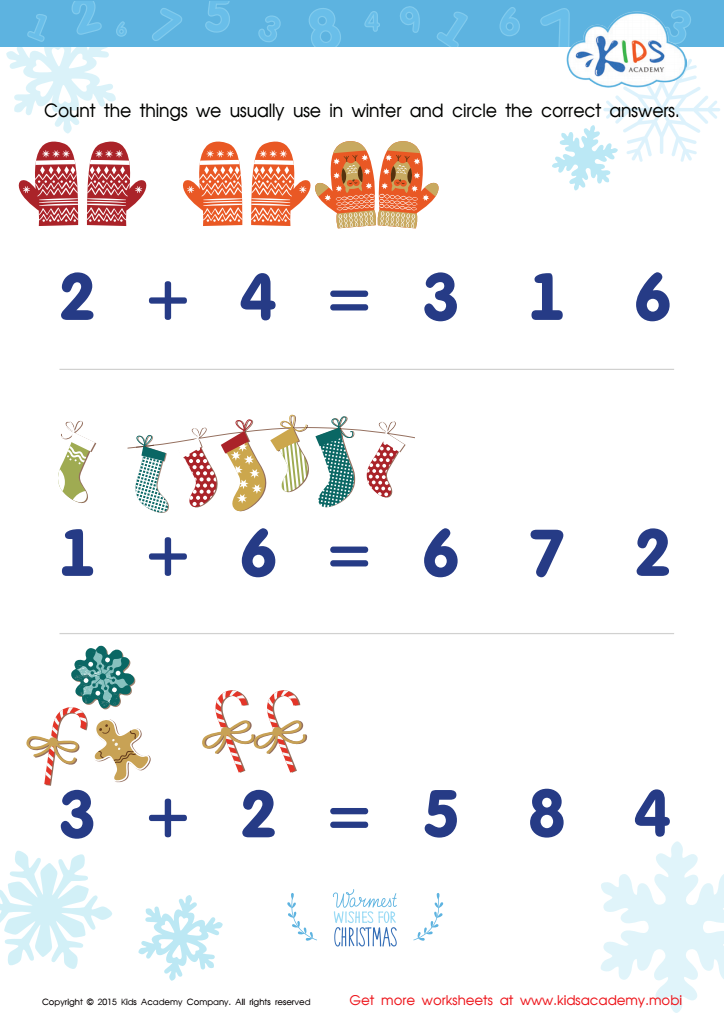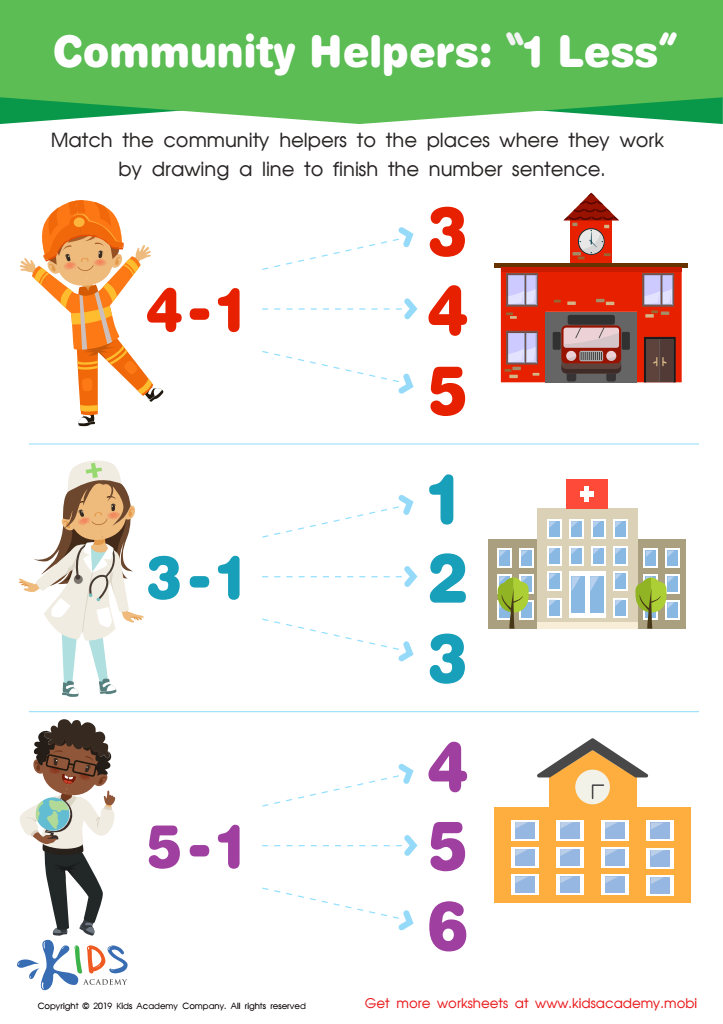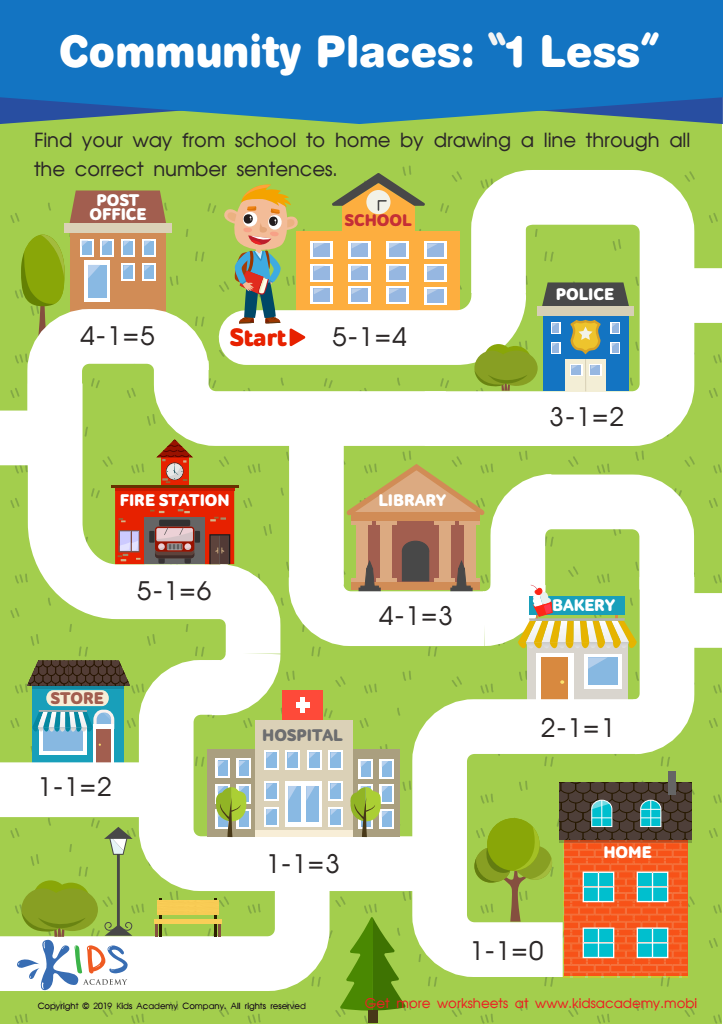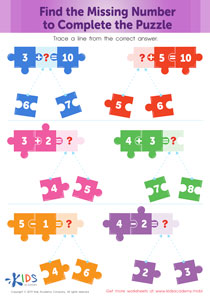Cognitive Development Extra Challenge Addition Worksheets for Ages 3-5
3 filtered results
-
From - To
Boost your child's cognitive development with our specially designed addition worksheets for ages 3-5! These extra challenge sheets are perfect for young learners ready to advance their addition skills. Kids will enjoy fun, engaging activities that promote critical thinking and problem-solving. Tailored for early learners, these worksheets provide just the right amount of challenge to stimulate brain growth and enhance arithmetic abilities. Help your little ones build a strong foundation in math, all while nurturing their developing minds. Download, print, and watch your child flourish with these exciting, educational resources.


Count Winter Things Worksheet


Community Helpers: 1 less Worksheet


Community Places: 1 Less Worksheet
Cognitive Development Extra Challenge Addition for ages 3-5 is crucial because these early years are a prime time for brain development. Engaging young minds in activities that stimulate cognitive growth helps build a foundation for future learning. Here's why parents and teachers should care:
-
Enhances Critical Thinking: By introducing extra challenges in simple mathematical operations like addition, we help children develop problem-solving skills. Early practice enhances logical thinking and the ability to approach problems methodically.
-
Boosts Memory and Concentration: Challenging tasks require children to remember steps and stay focused. These exercises strengthen working memory and attention span, both essential for academic success.
-
Fosters a Growth Mindset: Introducing challenging but achievable tasks teaches resilience. When children encounter difficulty, they learn the value of effort and persistence, fostering a growth mindset that benefits all areas of learning.
-
Promotes Self-Confidence: Successfully tackling challenges in arithmetic helps children feel competent and encouraged. This boosts their self-esteem and motivates them to take on new challenges.
-
Prepares for School: Early exposure to mathematical concepts gives children a head start as they enter formal schooling. They build a familiarity with numbers and operations, which makes the transition smoother and positions them for academic achievement.
In summary, incorporating cognitive challenges like extra addition into early education enriches brain development, setting young learners on a path of confident and successful learning.
 Assign to My Students
Assign to My Students





















